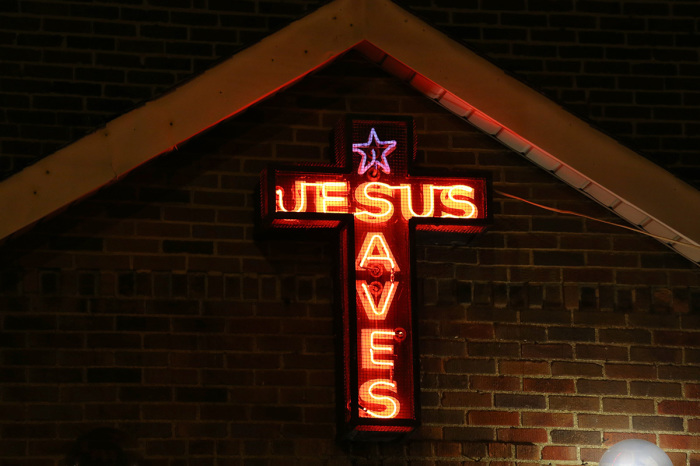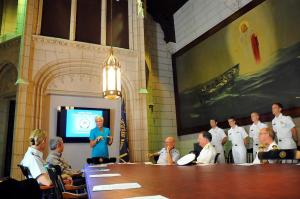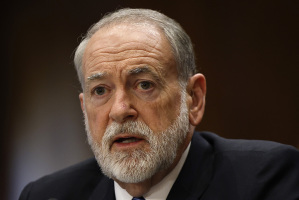Majority of Americans say religion is losing influence in public life: Pew

Most American adults say religion is losing influence in public life and many are not happy about it, a new study from the Pew Research Center has found.
The findings of the study, conducted Feb. 13-25 among a nationally representative sample of 12,693 U.S. adults, found that adults, in many ways, yearn for the positive impact traditionally associated with religion. Many, however, including nonreligious Americans, feel what they believe or do not believe puts them in conflict with mainstream culture.
“Overall, there are widespread signs of unease with religion’s trajectory in American life. This dissatisfaction is not just among religious Americans. Rather, many religious and nonreligious Americans say they feel that their religious beliefs put them at odds with mainstream culture, with the people around them, and with the other side of the political spectrum,” Pew researchers Michael Rotolo, Gregory A. Smith and Jonathan Evans wrote.
The study provides a clear statement from the public on how they want to engage with faith in the public sphere. It comes on the heels of a recent Infinity Concepts report based on responses from 1,039 Evangelical Protestants, which found that a majority of Evangelicals only agree on just two issues that churches and their leaders should be very involved with in public life — abortion and what is acceptable in public expressions of faith.
Pew researchers found that 80% of U.S. adults say religion’s role in American life is shrinking, which is as high as the sentiment has ever been in previous surveys. Most Americans who say religion’s role is shrinking aren’t happy with religion’s trajectory, and 49% of U.S. adults overall say it’s a bad thing. Another 8% who said they thought religion’s influence is growing called it a good thing. Combined, some 57% of U.S. adults believe the influence of religion in society is a good thing.
Many of the key findings of the study highlight the growing unease among American adults with the trajectory of religious influence in the nation.
Some 48% of U.S. adults said there’s “a great deal” of or “some” conflict between their religious beliefs and mainstream American culture, which is an increase from 42% in 2020. Another 29% think of themselves as religious minorities, up from 24% in 2020; and 41% say it is best to avoid discussing religion at all if someone disagrees with you, which is up from 33% in 2019.
Among religiously unaffiliated adults — those who identify, religiously, as atheist, agnostic or “nothing in particular” — some 72% say conservative Christians have gone too far in trying to control religion in the government and public schools, while 63% of Christians say the same about secular liberals.
In discussing the proper role of religion in society, Republicans were found to be more likely than Democrats to support religious influence in both government and public life.
Some 42% of Republicans and Republican-leaning independents, for example, say the Bible should have more influence on U.S. laws than the will of the people when there is a conflict between the Bible and the will of the people. Only 16% of Democrats and Democratic-leaning independents support this position.
While 21% of Republicans and Republican-leaning independents say the federal government should declare Christianity the official religion of the U.S., only 7% of Democrats and Democratic-leaning independents support this.
Still, almost all Americans, or 94%, say it is “very” or “somewhat” important to have a president who personally lives a moral and ethical life. A majority, or 64%, also say it’s important to have a president who stands up for people with their religious beliefs.
Almost half, or 48%, say it's important for the president to have a strong religious belief, while just 37% say it’s important for the president to share their religious beliefs.
While neither former President Donald Trump (4%) or President Joe Biden (13%) are seen as particularly religious, their respective supporters felt they stood up for religious groups.
“Though they don’t think Trump is very religious himself, most Republicans and people in religious groups that tend to favor the Republican Party do think he stands up at least to some extent for people with their religious beliefs. Two-thirds of Republicans and independents who lean toward the GOP (67%) say Trump stands up for people with their religious beliefs ‘a great deal,’ ‘quite a bit’ or ‘some,’” researchers wrote.
“Similarly, 60% of Democrats and Democratic-leaning independents, as well as 73% of Jewish Americans and 60% of black Protestants, say Biden stands up for people with their religious beliefs a great deal, quite a bit or some.”
Contact: leonardo.blair@christianpost.com Follow Leonardo Blair on Twitter: @leoblair Follow Leonardo Blair on Facebook: LeoBlairChristianPost





























